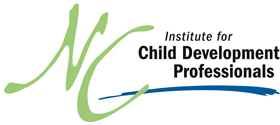
Certification, Endorsements & Licensure
Professional Recognition
In North Carolina, over 30,000 individuals work with and/or support the quality of services for children in early care and education and school age programs.
This vibrant industry generates over $1.7 billion annually, creates jobs that stay in our state, enables families to work, seek employment and attain a college education. The availability of quality child care also enables employers to attract and retain employees and lays the foundation for children to succeed and our state’s economy to thrive.
Three forms of professional recognition for the workforce — individual certification, endorsements for certified early educator by role, and teacher licensure. All provide consumers, employers, regulators and others with information about the level of education of those working with children in out-of-home settings.
Research has shown that teacher education levels impact child outcomes. As in many professions, education is the basis for certification and licensure. Education is defined as coursework taken at a regionally accredited college or university.
Early Educator Certification (EEC)
Early Educator Certification (EEC) is North Carolina’s certification system for the field of Early Childhood.
EEC is an acknowledgement of an individual’s verified level of educational achievement, based on a standardized scale.
EEC does not replace teacher licensure and is designed to compliment that process.
Research has shown that teacher education levels impact child outcomes. As in many professions, education is the basis for EEC. Education is defined as coursework taken at a regionally accredited college or university.
All public community colleges and universities in North Carolina are regionally accredited.
For a list of regionally accredited college and university programs go to the Council for Higher Education Accreditation.
The NC Institute for Child Development Professionals is the certifying body for early care and education and school age professionals in North Carolina.
Those eligible to be certified include all those currently working directly with, working on the behalf of or intending to work with young children in North Carolina.
Individuals who are teachers or teacher assistants in child care, pre-kindergarten and Head Start settings, school age group leaders and coordinators, family child care providers, administrators, faculty, specialists, education coordinators, trainers, consultants, researchers and more are eligible to be certified.
History of Certification
The NC Early Educator Certification system was developed in response to interests by the field in developing an individually-held, portable form of certification that would mirror professional certifications of other fields and serve as a step in the career pathway for NC early educators working directly with or on the behalf of children ages birth to twelve in out of home settings.
As a result, the field and state would realize cost efficiencies as EEC became the entry point for all those working directly with young children in regulated settings, on the behalf of children in support or education roles or intending to work in NC with the birth to twelve population in out of home settings — regardless of role, place of employment or geographic location.
Members of the Institute developed the EEC process following research supported by private dollars to inform the members about processes used by other professions that certify their workforce and build an individually held, portable, field-wide professional certification issued for a minimal fee.
The resulting copyrighted education verification process, using the Early Care and Education (ECE) Scale, was piloted in 2008 over a two-year period. Support from DCDEE allowed early educators to pilot the field-held process at no charge and seek efficiencies in education verification processes, provide benefits, professionalize the field and more.
In 2010, the School Age Professional Scale was developed providing those working with children in before and after-school care programs with a professional certification. The ECE scale was expanded to include additional levels, reflective of the many steps early educators take when pursuing a college education. The law put in place in 2010 requiring certification was allowed to sunset in 2011.
In 2011, EEC levels were added to child care facility licensure policy to support the thousands of early educators who hold an EEC level to use it as an equivalent for teacher education verification for child care facility licensure purposes and to support a portable form of education verification for use by DCDEE regulatory consultants and for hiring — saving time and money.
Also in 2011, EEC was coupled with access to a password protected online portal of work-life as well as personal and professional benefits for certified early educators.
In the same year, the first of endorsements for certified early educators to demonstrate specific knowledge and skills by role and support the expansion of career pathways was developed for professional development practitioners.
In 2012, an Administrators Endorsement was released followed by a Technical Assistance Practitioner Endorsement in early 2014 developed by early educators over a 6-month process.
Birth through Kindergarten Teacher Licensure
The North Carolina Birth-through-Kindergarten degree and license prepares early educators to work with young children, from birth through age 5 years, with and without disabilities, including those at-risk, and their families.The pre-service process requires coursework and student teaching/internship to qualify for a NC Educator’s Standard Professional I license issued by the NC State Board of Education.
The in-service process requires three years of induction or beginning teacher support, coupled with formal teacher evaluations, resulting in a professional development plan, leading to a North Carolina Birth-through-Kindergarten Standard Professional II license.



